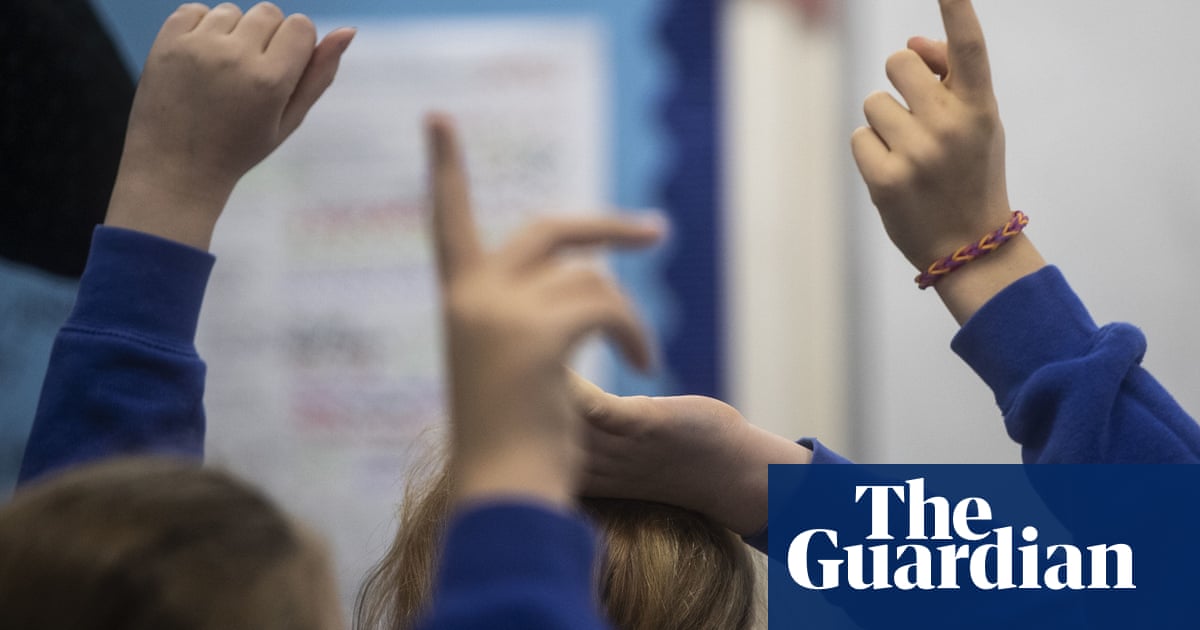
The government is to give an extra £650m to schools in England to help pupils catch up on teaching missed during the coronavirus lockdown since March, as part of a £1bn package.
Gavin Williamson, the education secretary, will announce the funding on Friday, which will also include a separate £350m in subsidies for a one-year national tutoring programme – as revealed by the Guardian – to help the most disadvantaged children in their education by offering low-cost tuition for schools to purchase.
“This package will make sure that every young person, no matter their age or where they live, gets the education, opportunities and outcomes they deserve, by spending it on measures proven to be effective, particularly for those who are most disadvantaged,” Williamson said.
“The plan will be delivered throughout the next academic year, bringing long-term reform to the educational sector that will protect a generation of children from the effects of this pandemic.”
The subsidised tutoring being offered through the new programme from September is likely to cost state schools £12 an hour in the scheme’s first year, compared with the £50 an hour usually charged by the private providers involved.
The £1bn total funding represents Boris Johnson’s promised “massive catch-up operation” after he was stung by criticism that he had failed to reopen schools quickly enough to avoid damaging the education of hundreds of thousands of disadvantaged pupils.
“I want to once again thank teachers, childcare workers and support staff for the brilliant work they have been doing throughout the pandemic,” Johnson said. “This £1bn catch-up package will help headteachers to provide extra support to children who have fallen behind while out of school.
“I am determined to do everything I can to get all children back in school from September, and we will bring forward plans on how this will happen as soon as possible.”
School leaders said the final details of the funding to be spent in the 2020-21 academic year would determine how they could use the extra resources, but many were enthusiastic if schools were given latitude on how to best spend the money.
“We are very pleased to see that leaders will be able to decide how this money is spent on evidence-based interventions, as they know their pupils the best, and are experts in identifying learning gaps,” said Geoff Barton, general secretary of the Association of School and College Leaders.
“It remains frustrating that we haven’t had the opportunity to discuss any of this with the government before this announcement and that we once again find ourselves having to guess the detail.
“We really do need a much more collaborative approach so that the government and profession can together work on developing a really effective, joined-up national plan.”
The national tutoring programme (NTP) is to put out an “open call” for organisations that want to enrol and receive funding. It will allow state primary and secondary schools to receive “heavily subsidised tutoring” from the programme’s approved list of partners, according to the Education Endowment Fund (EEF), which backs the project.
“The NTP will make high-quality tuition available to schools, providing additional support to help pupils who have missed out the most as a result of school closures,” the EEF said.
According to most research, one-to-one and small group tuition are among the most effective means of improving educational outcomes, with the high cost the usual obstacle to tutoring being employed more widely. But this summer the EEF is piloting a new scheme through four tutoring organisations to offer low-cost online tuition.
“There is strong evidence that high-quality tuition is a cost-effective way to enable pupils to catch up. While it is certainly no silver bullet, access to tuition will be key to supporting the work of teachers in mitigating the impact of school closures in the coming months and years,” said Sir Peter Lampl, the EEF’s chair.
“The government’s support for more high-quality tuition for our poorest children from this summer is a huge step forward. The national tutoring programme is a major opportunity to not only reverse the damage done by school closures, but to also build a fairer education system for the future.”












